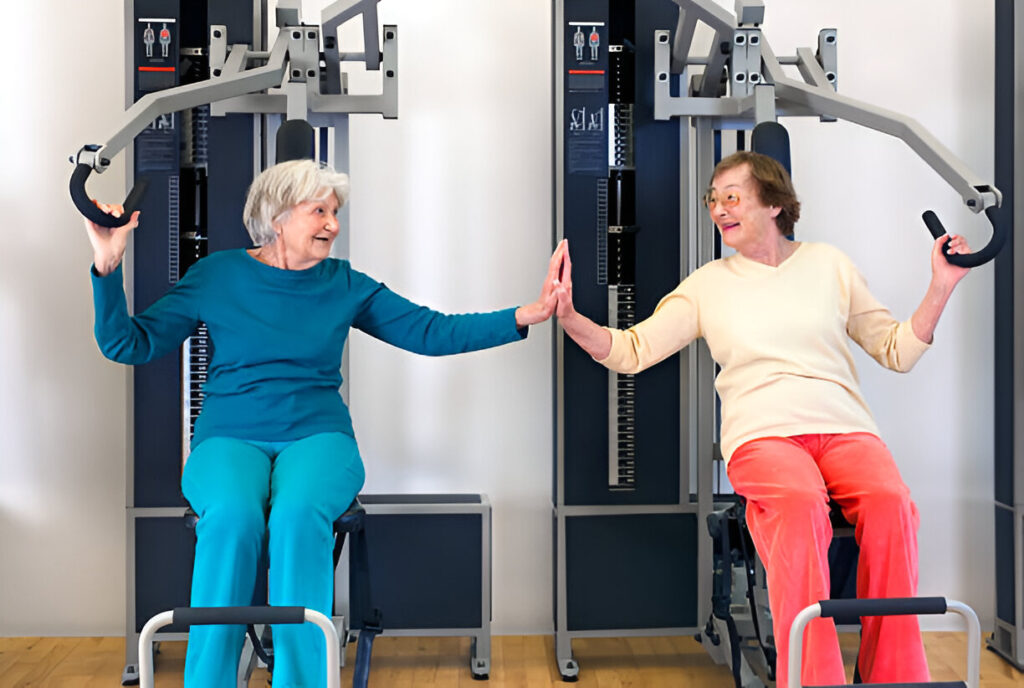It is normal to experience lowered hormone levels as we age. Testosterone levels can drop for men, estrogen levels drop in women, and HGH levels drop for all genders. A rapid drop of any hormone level can indicate a serious issue involving your pituitary gland. If you notice a sudden drop in strength, flexibility, or overall energy, it’s a good idea to talk to your doctor and get some bloodwork done.
The Role of Hormones in Aging
HGH
As HGH levels decline, you may gain weight. As your waist gets bigger, your muscle mass may drop. Your overall energy level may drop; you might even have a tougher time managing stress because you just don’t have the energy to stay as active as you have in the past.
If you have HGH deficiency, sermorelin therapy may be an option. Before searching for sermorelin for sale, ensure you get a thorough physical with the necessary bloodwork. Images of sermorelin before and after can be inspiring, but you must ensure your pituitary gland is functioning well.
Estrogen
A drop in estrogen levels can leave you feeling exhausted. Brain fog may also get in the way of your usual productivity. Headaches, particularly in the early stages of perimenopause, can be quite debilitating. Not everyone is a good candidate for HRT. Do your best to structure your day more snugly; brain fog is easier to overcome when you know what to do next. Focus on your exercise routine. Breaking a sweat daily can lower your risk of frustrating hot flashes.
Testosterone
A drop in testosterone is normal, but it can have a serious impact on your mood and your vigor. Men who suffer a sudden drop in testosterone may notice a drop in muscle power, energy, and flexibility. As they feel weaker, they may also suffer a drop in sex drive and even struggle with anxiety or depression. If you or a man you love is experiencing the symptoms of low testosterone, a detailed physical and a conversation with a counselor may be helpful.
Thyroid hormones
A drop in thyroid production can also lead to a feeling of weakness and overall low energy. If you’re already being treated for low estrogen or testosterone, pay attention to your skin and your gut. Those suffering from low thyroid can also struggle with constipation, weight gain, and extremely dry skin. If you’re always cold despite hormonal treatments, get your thyroid checked.
Changes Linked to Hormonal Decline
Muscle loss
A layer of muscle over bones can do more than give you strength. Maintaining muscle mass can increase blood flow to your bones; healthy muscles also make it easier to protect your ligaments and tendons from shocks if you fall or suddenly have to lift something heavy. Weak muscles are much more likely to tear.
Increased fat
If your clothes don’t fit because your waist is expanding, you’re at greater risk of more than just ill-fitting garments. Extra weight, especially around your middle, can put you at greater risk of diabetes and heart disease. If your diet hasn’t changed and you’re still gaining weight, it’s time to schedule a physical exam.
Lower energy levels
Low energy may mean lower overall productivity. You may struggle to get to your regular workouts or even avoid gatherings with friends; you just don’t feel like getting out and about. If you’re working hard to get to bed at a logical time or trying to get more rest on the weekends and you never feel slept out, it could be your hormone levels. Find out the source of your low energy before other mental and physical health issues cause you serious harm.
Bone density loss
Loss of bone density can impact both men and women. If you have a family history of osteoporosis, your risk may be higher. Losing bone density can increase your risk of a serious fracture should you fall or stumble. Over time, loss of bone density can lead to serious nerve pain due to spinal collapse. Sadly, bone density loss often doesn’t become visible until you suffer a dangerous break. Anyone struggling with hormonal issues should undergo a bone scan as well.
Slower recovery
In the early stages of hormonal decline, you may be pushing yourself to work out harder to correct perceived muscle loss. If post-workout soreness or middle-of-the-night muscle cramps are becoming a constant source of frustration, you may be in the early stages of hormonal decline. Instead of punishing yourself by pushing through, get a physical and request detailed bloodwork to get your HGH and other hormones checked.
Aging will change your body. However, you can fight the loss of strength, energy, and flexibility with careful hormone therapies. Those with a family history of osteoporosis need to act as soon as they notice a drop in energy or muscle mass. If you find that your mood is low or it’s just tough to get excited about life, low levels of testosterone or estrogen may already be affecting your spirit. Book an appointment for a physical with detailed bloodwork.



